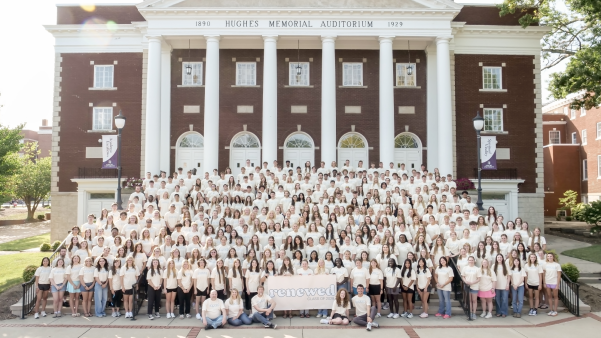A House Divided: The Secret Betrayal—Incest, by Katherine Edwards (Zondervan, 135 pp.; $8.95, paper). Reviewed by Stefan Ulstein, who teaches at Bellevue (Wash.) Christian School.
When an earlier version of A House Divided was published several years ago, the editors chose not to include the word incest in the title. It is an ugly word, reeking of sin and degradation. But it is the correct word for the all-too-common crime of sexually abusing one’s own children.
Katherine Edwards, a pseudonym for a midwestern college professor, is a victim of incest. Her adoptive father began sexually abusing her when she was in the sixth grade and stopped a year and a half later when his wife found out. Like most pedophiles, he insisted that it had only happened once, that he had never approached anyone else, and that he would stop.
Had Edwards’s mother talked to her daughter, she would have learned that the abuse started with fondling and progressed in severity. She Would have found that her husband, a respected member of his church and community, had threatened and bullied his teenaged daughter to get her to keep “their little secret.”
He did stop, though, and later began molesting Edwards’s younger sister, Annie. As incest cases go, Edwards’s is neither the mildest nor the most severe. On a scale of one to ten, it is probably about a four or five. Yet the effects on her life were devastating. Betrayed and exploited by the man most responsible for protecting her, she sought refuge in teenage rebellion.
Like many incest victims, Edwards was placed in the position of protector. Her silence was necessary to keep the family secret, to protect the family name.
To escape her abusive home, Edwards married early to a man who treated her much like her father had. Annie fared worse, finally divorcing her alcoholic husband when she found him trying to strangle one of the children, later sinking into the despair of promiscuity to find male acceptance.
Much has been written about sexual abuse in recent years, some of it simplistic, some of it as exploitative as the crime itself. A House Divided gives us a personal narrative, a chronicle of the author’s spiritual journey and healing. The final, more academic chapters, complete with footnotes, are helpful, even essential, but it is the unrelenting power of Edwards’s narrative that makes A House Divided difficult to put down and impossible to ignore.
Unlike most incest victims who carry their secrets well into middle age, Edwards did tell someone. At 13, she told her teacher, who initially believed her, then turned on her. During a confirmation class, she told her pastor, who replied, “Everything will be all right,” and moved on to the next point in the catechism.
Edwards tells her story with compassion, stressing forgiveness and restoration. She captures the agony of an abused child who feels that the adult world is in a conspiracy against her dignity and personhood.
Never bitter, Edwards refuses to gloss over the long-term effects of incest. She is unrelenting in her assertion that life is forever changed for the incest victim, and her story illustrates the closed circle of the abused who move into a succession of abusive relationships or, worse, become abusers themselves. Edwards shows us how that circle can be broken.
A House Divided is an excellent primer on the effects of incest. Victims will find solace in Edwards’s story of grace and redemption. Pastors and counselors will find a coherent picture of the world of an incest victim. Friends and family will benefit from an articulate defense of victims, whose years of repression often make it impossible to communicate their needs and feelings. Abusers, unfortunately, will not bother to read it.










